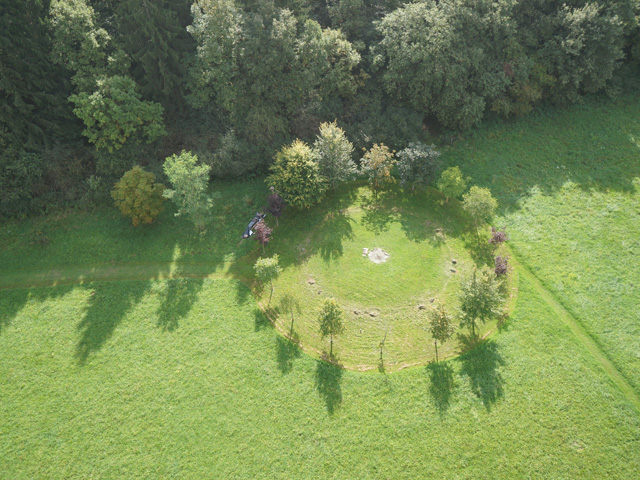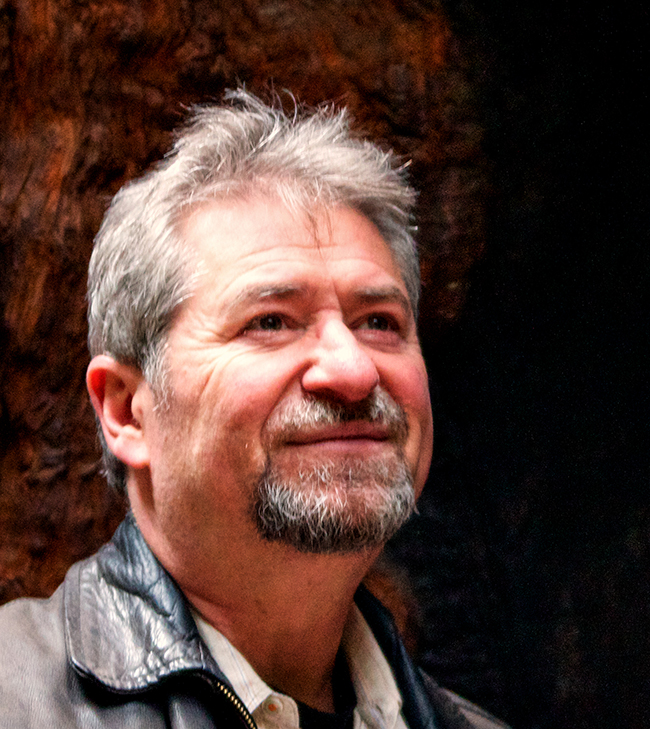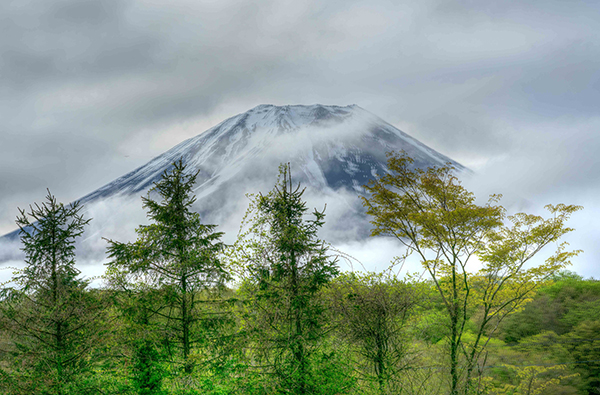by Alan Briskin | Conflict, Power

Photography by Alan Briskin
Sitting in a workshop on inclusion and diversity, author Fredrick Miller commented on his forty years heralding change. “I came to see my belief in fundamental change happening during my lifetime as a form of arrogance.” His comment, almost an aside, demonstrated a different kind of faith. It recalled to mind a tenet of Martin Luther King’s essay on non-violence, “An Experiment in Love.” King’s sixth and final principle declared that “nonviolent resistance … is based on the conviction that the universe is on the side of justice. Consequently, the believer in nonviolence has deep faith in the future.”
To have faith in a future in which justice prevails requires either a naïve personality or something else. It is the something else that is worth exploring. When we subtract naivety from the equation – neither Miller nor King was naïve about current conditions – we are confronted with an extraordinary formulation that adds power to related ideas of love and justice.
Sadly, we are all too familiar with the tendency of power to distort into forms of domination and over-reach. How can we not see, with a helpless feeling, the rise of authoritarian regimes led by demagogues, dictators, and just plain lunatics? But King understood this from his own experience of racism and the manipulation of legal instruments to reinforce social injustice. “Power without love is reckless and abusive,” he wrote, “and love without power is sentimental and anaemic. Power at its best is love implementing the demands of justice, and justice at its best is power correcting everything that stands against love. “
The question of power should fascinate us not only for its paradoxical qualities but for its ability to express something fundamental about human existence. Power is a necessary ingredient for those who desire to rise from the bog of social conformity and express something essential about themselves. In social contexts, it is the ability to assert or resist actions that impact a sub-group of members within the larger social body. Power, as the theologian Paul Tillich stressed, is about the dynamic self-affirmation of life. There is a drive in each of us to realize our own essential being and to resist forces that would rip it from us or crush us under social, political, or psychological weight. Power need not be a force of domination when we understand it as an evolutionary energy helping us affirm all life.
So it is with great appreciation that Frederick Miller’s words rose up in my memory when considering the dynamics of power. The pursuit of justice, love, and power are not short-term goals or the work of the timid. We are standing for something which unites what has become estranged; love, power, and justice. It is when we recognize these essential forces as one that we become aligned with an even greater power. King ends his essay by noting that the faith he speaks of allows for a future in which no one is dominated and one can even accept suffering without retaliation. “For he knows,” King writes, “that in his struggle for justice he has cosmic companionship.”
Further reading –
A Testament of Hope: The Essential Writings and Speeches of Martin Luther King, Jr.
Edited by James M. Washington
Love, Power and Justice by Paul Tillich
Power and Love: A Theory and Practice of Social Change by Adam Kahane
The Power of Collective Wisdom by Alan Briskin, Sheryl Erickson, John Ott, Tom Callanan
by Alan Briskin | Events, Leadership, Spiritual Intelligence
Third annual conference
September 3–7, 2018
Beuerhof Farm, Vulkan Eifel, Germany

We are all at once both a composition and a composer. We have the ability not only to compose the future of our own lives, but to help compose the future of everyone around us and the communities in which we live.
~ Maya Angelou
With colleagues Gisela Wendling, David Sibbet, and Holger Scholz, we are excited to announce the third annual gathering of our Leading as Sacred Practice conference. We will be returning again to the extraordinary land at the Beuerhof Farm, Vulkan Eifel, Germany. In 2017, we had an equally extraordinary gathering at the Institute of Noetic Sciences in Petaluma, Calif.
As with my previous works, The Stirring of Soul in the Workplace and The Power of Collective Wisdom, I am interested in bringing to the forefront a network of leaders and organizational practitioners who have the spiritual conviction, psychological sophistication, and behavioral skills to create positive change. A sense of humor, playfulness, and stubborn persistence to do good will also come in handy. Perfection is not necessary or sought. We are not coming with answers but with a faith in the co-creative process.
Read More
by Alan Briskin | Books
 Last week at Berrett Koehler‘s author day for Parker Palmer, I had the pleasure of meeting Janet Perry. She is the founder of Nonfiction4life , a website dedicated to providing audiences with quality books and 30 minute author podcasts.
Last week at Berrett Koehler‘s author day for Parker Palmer, I had the pleasure of meeting Janet Perry. She is the founder of Nonfiction4life , a website dedicated to providing audiences with quality books and 30 minute author podcasts.
Meeting Janet was delightful, her passion for books obvious, and we quickly agreed to do a podcast.
Rare among interviews I’ve had, she read the book in detail and inquired about specific stories such as the fire at Mann Gulch, the Challenger explosion, and Ben Franklin’s role in the formation of the U.S. Constitution – relevant as ever during this time of government shutdown.
Listen to the podcast on their blog and please comment if you like it!
by Alan Briskin | Collective Wisdom, Leadership

From a systems perspective, emergence is a phenomenon in which something new arises from interactions among smaller or simpler components. The economist Jeffrey Goldstein describes emergence as “the arising of novel and coherent structures, patterns and properties during the process of self-organization in complex systems.”
My colleague, David Bradford, tells the story of the birth of National Training Labs, a pioneering center for the study of group behavior that began shortly after World War II. Leland Bradford, David’s father, was one of NTL’s founders.
In 1946, there was a workshop led by my father and his two colleagues, Ron Lippitt and Ken Benne. The purpose was to train community leaders to facilitate discussions in their own towns about housing for minorities. The participants were from the state of Connecticut. The workshop’s leadership team included Lippitt’s mentor, Kurt Lewin, and Lewin’s graduate students from MIT who were doing research on group process.
During the conference, in the evenings, the workshop leaders got together to hear the observations from the graduate students discussing the day’s events. It so happened that one evening a couple of the participants wandered into the room during the evening discussion. Lewin’s high regard for democratic principles likely played a role in allowing those persons to stay.
Read More
by Alan Briskin | Consciousness, Spiritual Intelligence, Video

On May 12, 2017, the Goi Peace Foundation convened a symposium at United Nations University in Tokyo, Japan. The theme, “Co-creating a World in Harmony and Balance” , was an expression of the Fuji Declaration and Soul of WoMen Initiative begun two years earlier.
I have worked with the Goi Peace Foundation for many years and was witness to the development of both the Declaration and Initiative. This symposium brought together thirty-five global leaders to address five perplexing dualities we encounter within a framework of oneness.
We knew there could be no way these leaders would be able to present even a fraction of their work in the world. How could we design a day that held a spark of the greater intention we all felt was possible when too many speeches might deaden the energy of the room? How could we work with an emergent perspective rather than one that focused solely on content? Adding to the complexity, the seating and tables were largely fixed and the symposium sponsors felt strongly that everything spoken should be available to everyone (an audience of about 50 people were in the hall with us) so no breakout sessions were possible.
Read More






